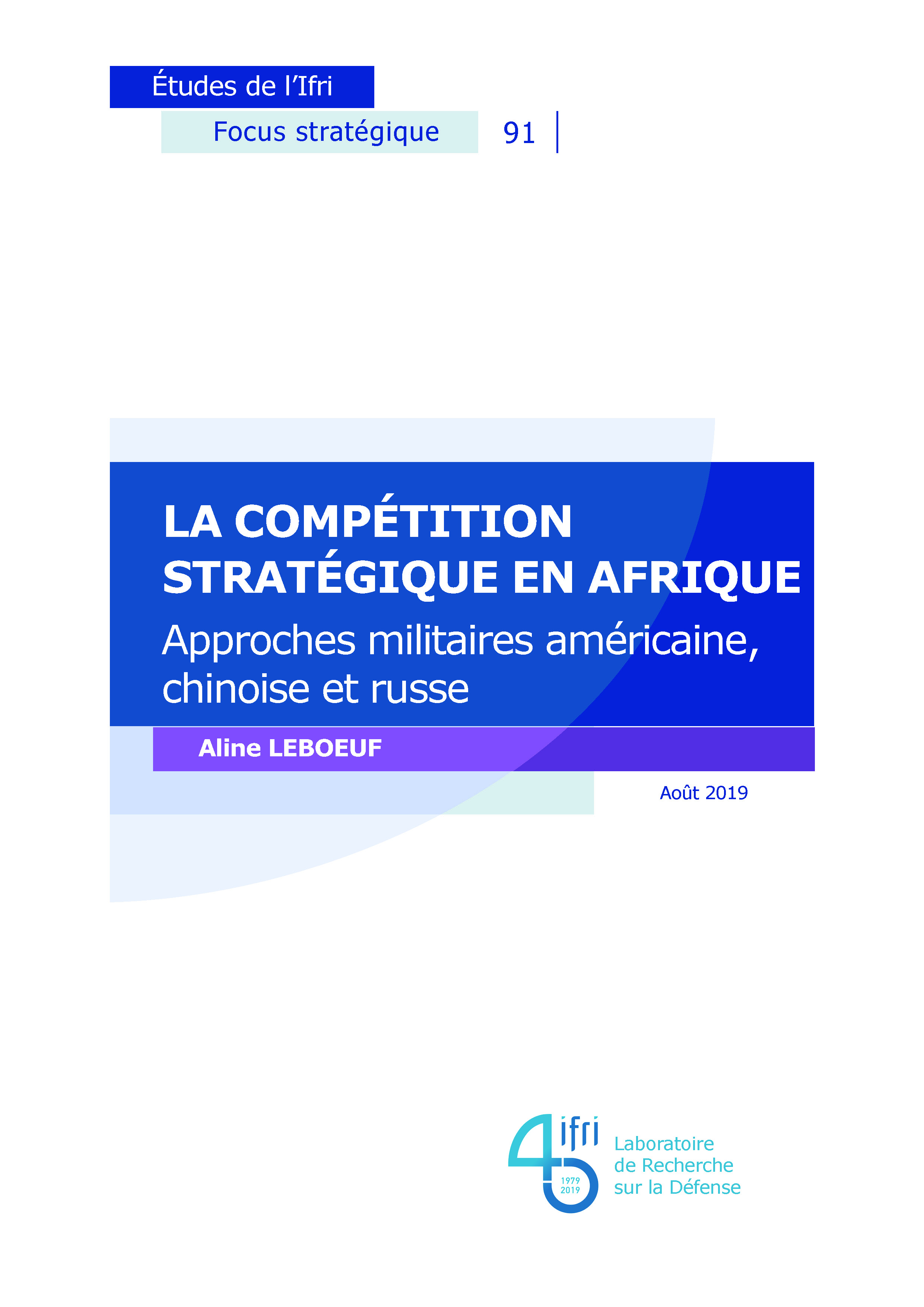La compétition stratégique en Afrique : approches militaires américaine, chinoise et russe

While it was left behind from power politics for the last decades, Africa is at the core of a renewed attention from global powers.
Africa was a crucial geopolitical stake during the Cold War, and is once again emerging as a significant area of strategic competition. Thereby, it attracts major non-European powers such as the United States, China, and Russia. Each of them seek to secure their access to the African theater of operations, through the means of funding and diplomatic agreements, construction of logistical bases, and the sustained exercise of their soft powers. They also conduct military operations on African soil. As the United States are still primarily engaged in Africa for counter-terrorism purposes, their actions on the ground are significant and coercive. As for China, its main efforts seem to be directed towards peacekeeping operations and plans for the evacuation of its nationals in the event of a crisis. For its part, Russia still restricts its operations to advisory activities. Finally, the three states are actively engaged in military cooperation, not only through arms sales, but also through joint training and exercises with their African partners. While the United States is still the dominant player in the African game, China and Russia are now catching up and increasing their involvement.
This content is available in French : « La compétition stratégique en Afrique. Approches militaires américaine, chinoise et russe ».
Related centers and programs
Discover our other research centers and programsFind out more
Discover all our analysesThe Franco-German Brigade and the Revival of European Defense
One thing has been clear since Donald Trump's return to the White House: the very existence of the European unification project is threatened. Unless it develops a sovereign defense policy to counter the war in Ukraine and the weakening of American security guarantees, the European Union will continue to see its internal cohesion and external attractiveness wane.
Taking the Pulse: Can Europeans Build Their Independent Extended Nuclear Deterrent?
Confronted with a U.S. disengagement and the Russian threat, Europeans are reconsidering their stance on nuclear deterrence. Given the capabilities of the French and British arsenals, can Europe develop an independent nuclear deterrent?

RAMSES 2024. A World to Be Remade
For its 42nd edition, RAMSES 2024 identifies three major challenges for 2024.
A Transatlantic Defense Industrial Base? Two Contrasting Views
The evolving landscape of global defense cooperation has brought the transatlantic relationship between the United States (US) and Europe into sharp focus. As geopolitical tensions rise and the threat environment becomes more complex, the question of how Europe can best ensure its security while navigating its relationship with the United States has become paramount. This double feature report offers two contrasting views on the dynamics of US-Europe defense industrial relations, highlighting the challenges and opportunities that lie ahead for both parties.










